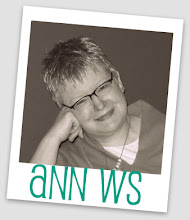This agreement is truly groundbreaking in three ways. First, it will give readers digital access to millions of in-copyright books; second, it will create a new market for authors and publishers to sell their works; and third, it will further the efforts of our library partners to preserve and maintain their collections while making books more accessible to students, readers and academic researchers.Here is each party's take on the settlement.
- Google Book Search’s page on the settlement
- Association of American Publishers’ page on the settlement
- Author’s Guild page on the settlement
- Joint FAQ about the settlement
- Official Google Blog entry about the settlement
- University of Michigan President Paul Courant’s analysis. (University of Michigan was one of the early Google Book partners.)
The library section, down near the bottom of the first link, says:
This agreement wouldn’t have been possible without all the libraries who have preserved these books and now partnered with us to make so many of them discoverable online. We’re delighted that this agreement creates new opportunities for libraries and universities to offer their patrons and students access to millions of books beyond their own collections. In addition to the institutional subscriptions and the free public access terminals, the agreement also creates opportunities for researchers to study the millions of volumes in the Book Search index. Academics will be able to apply through an institution to run computational queries through the index without actually reading individual books."...computational queries without actually reading individual books" has a brave new world sound about it, doesn't it
*Update* Harvard University Library weighs in and isn't happy. From Library Journal: Harvard University Library Director Robert Darnton said that
As we understand it, the settlement contains too many potential limitations on access to and use of the books by members of the higher education community and by patrons of public libraries.
Concern of many seems to be that Google is going from "a universal digital library" to a "universal digital bookstore" with Google Book (Paul Courant, UMich President). Libraries have collected these materials and made them available to researchers and others and with the idea of licenses or other payments for materials, some librarians are not happy. The Library Journal article above has a roundup of reactions.





No comments:
Post a Comment